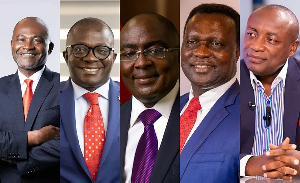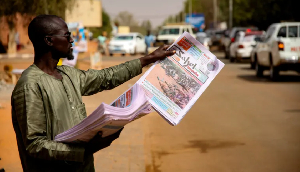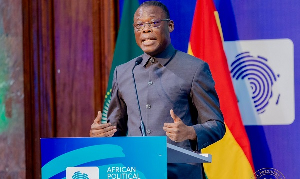By Kwame Okoampa-Ahoofe, Jr., Ph.D.
Garden City, New York
Oct. 17, 2015
E-mail: okoampaahoofe@optimum.net
She is a little older than I am, so Ghana’s Minister of Education may well remember that period in the nation’s academic culture when Ghanaian schoolchildren were instructed in our respective native languages and dialects during the first three years of elementary education (See “Ghana to Change English as Medium of Instruction” MyJoyOnline.com 10/16/15). It was during the fourth grade, or class four, when the English language was introduced at all levels of instruction. And even then, a special period called “Vernacular Time/Period” was set aside for the continuous study of our respective native tongues. Back then, as now, nobody really respected the teaching of indigenous Ghanaian languages, largely because languages are economic and political tools, and our leaders had not meaningfully demonstrated to any of us the cultural relevance and cognitive significance of acquiring a command of one’s native tongue.
I vividly remember that as a fourth grader at the University of Ghana’s Staff-Village Primary School, between 1969 and 1971, I used to have my lunch money fairly regularly taken away from me by the class monitor for speaking “vernacular,” instead of the official medium of instruction – English. Written in bold letters at the mid-top of our fourth-grade blackboard were the words SPEAK ENGLISH! Even as now, back then, I loved to talk a lot. I had also been the best English course textbook reader in first and second grades at the Akyem-Kankang (Kangkang) Presbyterian Primary School. You see, English instruction in Ghanaian public schools back then really began at first-grade level, but it was done piecemeal as a means of effectively getting us non-native speakers to comfortably acquire the use of the erstwhile colonial language of business and politics. To be certain, English is still the official medium of political and economic discourse.
The South Koreans whom Naana Opoku-Agyemang cited as an example of countries that have a progressive policy of actively engaging in the academic use of one’s native tongue as a medium of instruction, or pedagogy, also teach their schoolchildren a remarkable modicum of the English language. I know this for a fact because nearly every semester for the past twenty years, I have had at least a half-dozen recently immigrated South Korean students in my class. The Education Minister’s rationale for preferring Ghanaian schoolchildren to be instructed in their native tongues is the purported “inability of [Ghana’s] educated working class to develop the use of the English language to the levels taught them while they were in school.”
Well, I have a problem with this cavalier and non-evidentiary-based assessment of the English language skills of the average Ghanaian public school graduate. Part of this problem, of course, inheres in the fact that Naana Opoku-Agyemang does not specify precisely which level of Ghanaian public school graduates are most guilty. And even as I recently had occasion to tell an Accra radio-program host, most of our public schoolteachers are barely and/or passably literate in their use of the English language. And the basic problem is the fact that ours is more of a talking or oral culture than a reading culture. Then also, our education leaders and policymakers, including Naana Opoku-Agyemang, of course, do not seem to have effectively learned and/or mastered how to encourage and teach our school-age children and grandchildren to more meaningfully adapt the new information technology towards the remarkable enhancement or upgrading of the quality of their academic work.
Most of these adults use their cellphones and access to social network media to engage in rhetorical trivialities; and so that is what their children and grandchildren have picked up and made an unsavory habit of. Call it gossip. At best, these potential learning tools or technologies are routinely used to cheat on exams; which may very well explain the seemingly unprecedented and rampant and riotous cancellation of national school-promotion exams. There is also the practical aspect of getting all instructional materials translated into the 46, or so, local languages and dialects in the country. We are talking about both money and expertise here. Until now, most of our few schools of Ghanaian languages, like the most famous one at Ajumako, in the Central Region, have been extremely poorly funded. And so the caliber of graduates churned out is questionable, especially when it comes to the critical issue of textbook development.
I shall be taking up various aspects of this “Africanization” issue in due course, as this perennial debate on native tongues heats up, now that the charge is being led by the country’s most politically powerful educator and education policymaker. As for this nonsense about which is the most widely spoken indigenous language that ought to be considered as prime candidate for national curricular instruction, the answer is only debatable to those pathological cynics who are irredeemably set in their minor tribal ways. Too bad, but these morally and politically regressive tribal nationalists will not be allowed to stall the train of progress for the overwhelming majority of us bona fide Ghanaians. I shall, for now, leave our response at that – arrant and absolute nonsense!
Opinions of Tuesday, 27 October 2015
Columnist: Okoampa-Ahoofe, Kwame














